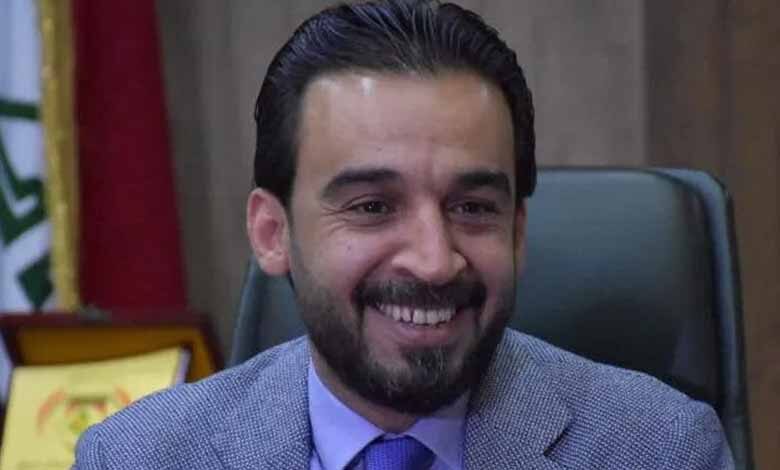Iraq: Parliament rejects al-Halbousi’s resignation and opposes Iran’s plans

In a move that would spoil the plans of Iran and its proxies in Iraq, the Iraqi Council of Representatives approved by a large majority a vote of confidence in its President Mohamed Al-Halbousi, refusing to accept his resignation. The vote came amid demonstrations in Liberation Square in Baghdad, rejecting the parliamentary session, which pro-Iran political opponents described as “unconstitutional”.
Reject Appeal
According to Iraqi political analysts, the renewal of confidence in Al-Halbousi was expected, especially as he did not submit his resignation in writing. This makes it seem like mere posturing and shows support for establishing his legitimacy, and that he has a popularity that exceeds that enjoyed by pro-Iran parties, according to the international English-language newspaper Arab Weekly.
The Media Department in the Council of Representatives said in its statement that the Council of Representatives “voted to renew confidence in the Speaker of the Council of Representatives, Mohamed Al-Halbousi,” where 222 deputies refused his resignation. The session coincided with the announcement of yesterday, Wednesday, by the Supreme Federal Court in Iraq, rejecting the appeal made by the Sadrist bloc to revoke its resignation. The court said that it lacked the legal capacity to intervene. The court’s approval of the resignation of Sadrist deputies would prevent the return of the deputies to their positions, but other appeals are still pending.
Interlocking crises
Supporters of the Iraqi Shiite cleric Muqtada Al-Sadr stormed the Green Zone in Baghdad on Wednesday, while the Iraqi parliament held a session on the resignation of Al-Halbousi, according to the newspaper report, which indicated that clashes broke out while security forces tried to disperse them, as the crisis started after Al-Sadr’s bloc won a majority of votes in the parliamentary elections last October, but he was unable to form a coalition majority government, and his followers broke into the parliament in late July to prevent their rivals from the Shiite groups supported by Iran from forming a government. It continued that with the ensuing marches, clashes with security forces, counter-marches and sit-in outside the parliament, the process of forming a government was stopped, and at least 30 people were killed in clashes between Al-Sadr loyalists and security forces; Bringing Iraq to the brink of street war, hostilities stopped when Sadr ordered his supporters to withdraw. Sadr is now demanding dissolution of parliament, early elections and a power struggle with his Iranian-backed opponents since the vote. Meanwhile, three Katyusha rockets landed in Baghdad’s fortified Green Zone during the parliament session, the official Iraqi News Agency reported. The agency added that four security personnel were injured.












